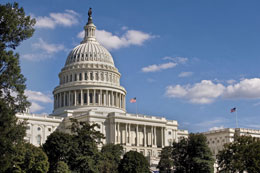- News
- Horse Racing
- Racing Preview
- AQHA Racing Challenge
- Breeding
- Sales
- Quick Stakes Results
- Detail Race Results
- Qualifiers
- Leader Board
- Leading Sires
- Videos
- Auction Leaders
- Q-Racing
Streaming Video

WASHINGTON, DCMAY 2, 2017 According to an article published Monday on the Daily Racing Form website, a bipartisan federal budget agreement reached late Sunday includes language that raises a cap on the number of nonagricultural worker visas that can be issued this year, quelling concerns in the racing industry, at least temporarily, that the federal government would cut back on a source of visas critical to backstretch workers.
The H-2B visa is of vital importance to the horse racing industry. The racing industry and other industries that use the H-2B visa, have been working hard to ensure this visa remains a viable option.
Although the agreement still needs to be approved by both houses of Congress prior to a Friday deadline, the proposals immigration components signaled that the federal legislature does not intend to align itself with the hard-edged rhetoric on immigrant workers coming from the presidential administration. In addition to backstretch workers, the nonagricultural visas, which are known as H2-B visas, are largely issued to laborers working at hotels and landscaping companies.
The proposal allows the current cap of 66,000 workers to be raised to approximately 130,000 at the discretion of the secretary of Homeland Security and secretary of Labor in the determination of an economic need of an industry.
The National Thoroughbred Racing Association estimates the racing industry currently accounts for only 1 or 2 percent of the total number of H2-B visas that are issued annually. The majority of workers employed by trainers on U.S. backstretches. Farm workers are covered under a separate visa program.
Horsemen had raised concerns over the past several months that backstretch workers would be harder to find under any curtailment of the nonagricultural visa program. The visas are granted to nonresident workers, and previous administrations had raised the cap by allowing workers who had previously worked in the U.S. to apply for limited annual renewals.

 Newsletters
Newsletters Facebook
Facebook